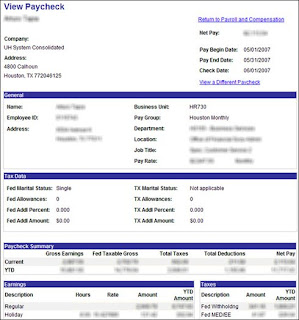 Alexander McPherson, a professor at UC Irvine, wrote an op-ed in the Los Angeles Times recently outlining his reasons for not participating in mandatory Sexual Harassment training.
Alexander McPherson, a professor at UC Irvine, wrote an op-ed in the Los Angeles Times recently outlining his reasons for not participating in mandatory Sexual Harassment training.His rationale proves that even professors of molecular biology can be idiots.
He cites three reasons for refusing to comply with California law:
- The training is 'a disgraceful sham';
- "The state, acting through the university, is trying to coerce and bully me into doing something I find repugnant and offensive...I am being required to do it for political reasons. The fact is that there is a vocal political/cultural interest group promoting this silliness as part of a politically correct agenda that I don't particularly agree with."
- [The training] "violates my academic freedom and my rights as a tenured professor."
As far as I can tell from my colleagues, it is worthless, a childish piece of theater, an insult to anyone with a respectable IQ, primarily designed to relieve the university of liability in the case of lawsuits...Actually, the university has nothing to do with it; the law was passed by the state legislature and is required for all businesses with 50 or more employees.
In FY 2007, the Department of Labor received over 12,000 charges of sexual harassment. That does not take into account the number of harassed employees who went directly to their attorney, or (in California), went to the state labor board with complaints.
Professor McPherson obviously is too important and too intelligent to lower himself to the level of every other supervisor and manager in California by taking the course. It's two hours long and not the end of the world.
There is no 'vocal cultural/political interest group' promoting the training. Unless you count the thousands of businesses who have paid hundreds of millions of dollars because their management did not know how to manage a hostile workplace, or avoid retaliation.
The EEOC alone fined employers nearly $50 million for harassment charges. Someone is paying for all of that.
The imposition of training that has a political cast violates my academic freedom and my rights as a tenured professor. The university has already nullified my right to supervise my laboratory and the students I teach... It has threatened my livelihood and, ultimately, my position at the university. This for failing to submit to mock training in sexual harassment, a requirement that was never a condition of my employment at the University of California 30 years ago, nor when I came to UCI 11 years ago.Uh, no it doesn't. If you were a professor only, you wouldn't have to 'submit' to the training. But you supervise a laboratory and others - you are in a position leadership and responsibility.
And the fact that training was never a condition of employment 30 years ago? Wah.
30 years ago, you could still smoke in the workplace. It was likely that women and minorities did not have an equal opportunity for promotions. Times change. Professor McPherson has not.
No one is impacting his livelihood other than the good professor himself. If he 'lowered' himself enough to attend a 2 hour class, there would be no impact.
But clearly he is too self-impressed and too important to do what everyone else in the state has done.
Sexual harassment training won't eliminate harassment or absolve employers from liability. But it's the law. Same as stopping at a stop sign.
Buckle up and deal with it, professor.











































